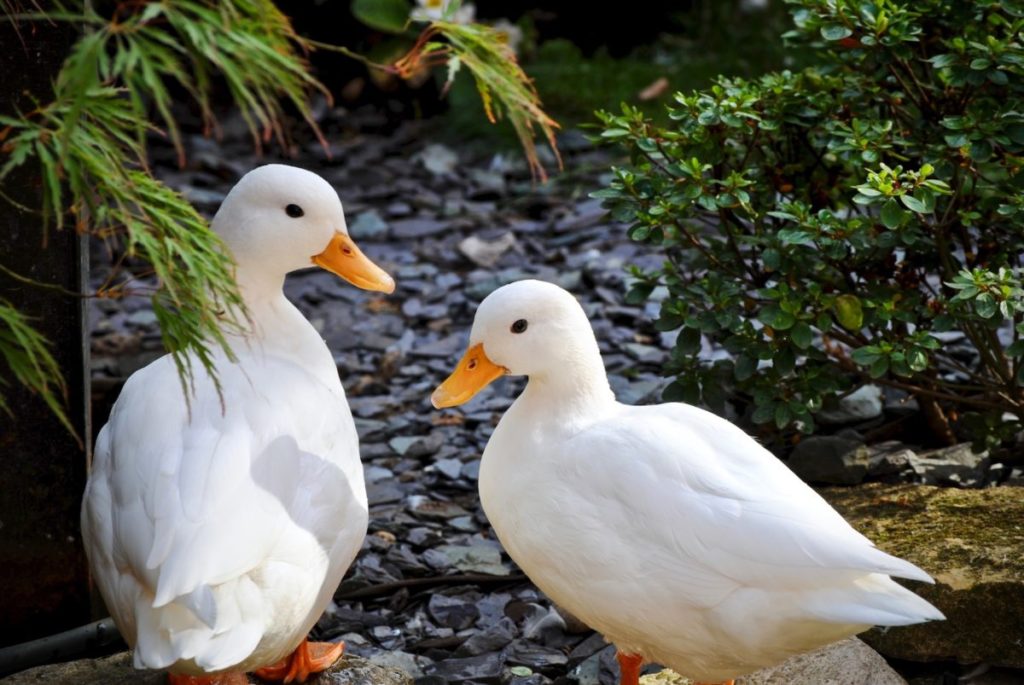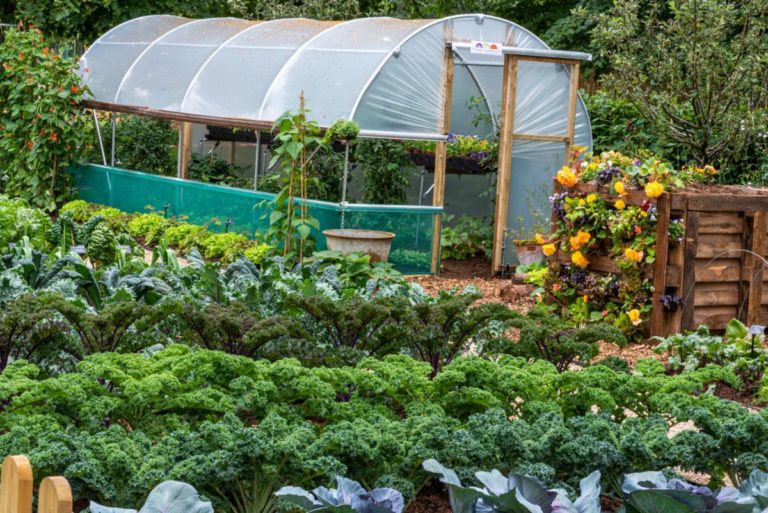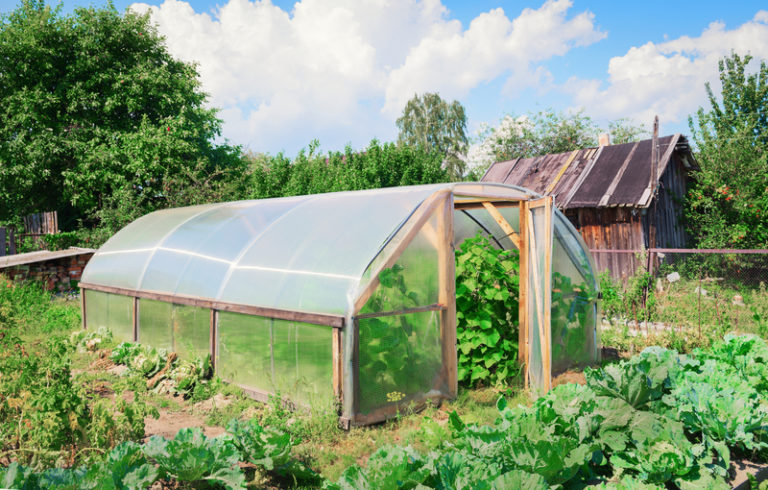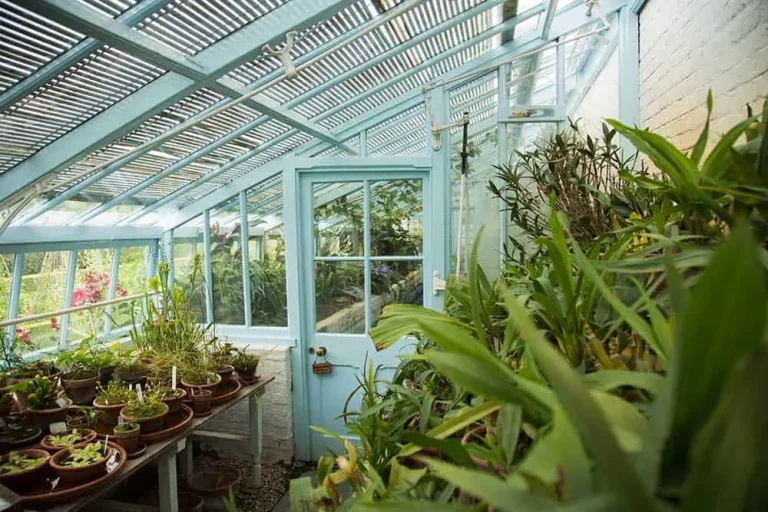Are you looking to increase your backyard flock’s productivity and diversify your food sources?
Look no further than raising ducks for meat and eggs!
With the right knowledge, equipment, and care, you can successfully cultivate these versatile birds and enjoy a bountiful harvest.
In this ultimate guide, we’ll delve into everything you need to know about raising ducks, from selecting the perfect breed to maintaining their health and well-being.
Whether you’re a seasoned farmer or just starting out, our comprehensive coverage will have you well on your way to achieving successful duck husbandry.
So let’s dive in and explore the ins and outs of raising ducks for meat and eggs!
Choose the right breed
There are many duck breeds available, each with its own strengths and weaknesses. For meat production, breeds like Pekin, Muscovy, and Khaki Campbell are popular choices. For egg production, breeds like Rouen, Welsh Harlequin, and Swedish are good options.
There are numerous duck breeds available, each with its unique strengths and weaknesses.
For meat production, Pekin, Muscovy, and Khaki Campbell breeds are top picks.
Pekin ducks are known for their fast growth rate and succulent meat, while Muscovy ducks offer a leaner meat with a distinctive flavor.
Khaki Campbell ducks are another popular choice for meat production, known for their fast growth rate and high-yielding meat.
For egg production, Rouen, Welsh Harlequin, and Swedish breeds are excellent options.
Rouen ducks are large and lay eggs with a high yolk and white ratio, making them a popular choice for homesteaders and small farmers.
Welsh Harlequin ducks are known for their high egg-laying capacity and ability to produce eggs in challenging weather conditions.
Swedish ducks are a hybrid breed, bred for their egg-laying abilities and are known for producing large, brown eggs.
Ultimately, selecting the right duck breed for your needs is important for success.
Researching and understanding each breed’s strengths and weaknesses can ensure you make an informed decision, leading to better production and satisfaction with your duck-keeping venture.
Provide a safe and healthy environment
Ducks need a clean, dry place to live with access to fresh water and food. They should be protected from predators and provided with adequate ventilation.
To ensure the health and well-being of your ducks, it is important to provide them with a safe and healthy environment.
This includes a clean, dry place to live, access to fresh water, and a balanced diet that meets their nutritional needs.
In addition to these basic needs, it is also important to protect your ducks from predators and provide them with adequate ventilation to prevent respiratory problems.
First and foremost, your ducks need a clean, dry place to live.
This means that their living area should be regularly cleaned and disinfected to prevent the buildup of bacteria and other harmful pathogens.
It is also important to ensure that their living space is well-ventilated, as ducks are susceptible to respiratory problems if they are exposed to damp or dirty conditions.
In addition to a clean living space, your ducks also need access to fresh water at all times.
This is essential for their overall health and well-being, as ducks require a steady supply of water to stay hydrated and maintain their bodily functions.
It is important to provide your ducks with a balanced diet that meets their nutritional needs.
This includes a variety of fruits, vegetables, and protein sources, such as mealworms or crickets.
A high-quality duck feed can also be supplemented with these treats to ensure that your ducks are getting all of the nutrients they need to thrive.
Overall, providing a safe and healthy environment for your ducks is important for their health, well-being, and overall quality of life.
By ensuring that they have access to clean water, a healthy diet, and a safe living space, you can help your ducks live long, happy, and healthy lives.
]]]) Providing a Safe and Healthy Environment for Your Ducks
As a duck owner, providing a safe and healthy environment for your feathered friends is important for their well-being and longevity.
One of the most important aspects of a healthy environment for ducks is access to fresh water at all times.
Ducks need water to stay hydrated and maintain their bodily functions, and a steady supply of water is essential for their overall health.
Fresh water is essential for ducks, and it should be provided in a clean and easily accessible location.
The water should be changed frequently to prevent bacterial growth and ensure the ducks have access to clean drinking water at all times.
It is also recommended to provide a separate water source for swimming and bathing, as this can help to keep the water clean and prevent the spread of disease.
(Source: How to Keep Your Ducks Healthy by Dr.
James W.
Dickson)
In addition to fresh water, a healthy diet is also important for your ducks.
Ducks should be fed a balanced diet that includes a mix of grains, fruits, and vegetables.
Some safe fruits and vegetables for ducks to eat include
* Leafy greens such as kale, spinach, and collard greens
* Fresh vegetables such as carrots, sweet potatoes, and peas
* Fruits such as berries, cherries, and apples
It is important to avoid giving your ducks certain foods, as they can be harmful to their health.
These include
* Chocolate, as it contains a toxic substance called theobromine
* Caffeine, as it can cause hyperactivity and lead to disease
* Raw or undercooked meat, as it can contain harmful bacteria such as salmonella and E.
Coli
* Onions, garlic, or chives, as they can cause anemia and damage to the birds’ respiratory system
* Avocado, as it can cause difficulty in breathing and damage to the birds’ respiratory system.>
Providing a safe and healthy environment for your ducks is important to ensuring they live happy, healthy lives.
To start, you should provide a clean, dry place for your ducks to live with access to fresh water and food.
Predators, such as foxes and coyotes, can pose a threat to your ducks, so it’s important to protect them with a secure enclosure or coop.
You should avoid giving your ducks certain foods, as they can be harmful to their health.
Chocolate, caffeine, raw or undercooked meat, onions, garlic, and chives can all be toxic to ducks and should be avoided.
Instead, you can feed your ducks a balanced diet of duck pellets, grains, and fresh vegetables like berries, cherries, and apples.
It’s also important to keep their living space clean and free of waste to prevent the spread of disease.
By providing a safe and healthy environment, you can help your ducks thrive and live happy, healthy lives.
Nutrition is key
Ducks need a balanced diet that includes grains, proteins, and vitamins. They can be fed a commercial duck feed or a homemade feed that includes ingredients like oats, barley, and vegetables.
Nutrition is a important aspect of duck care, as a balanced diet can help maintain their overall health and well-being.
A balanced diet for ducks should include grains, proteins, and vitamins.
Commercial duck feed is a convenient and nutritionally-balanced option, but it can be supplemented with homemade ingredients for added variety and nutrition.
For example, you can add oats, barley, and vegetables like kale, spinach, and carrots to their diet.
It’s important to avoid feeding them table scraps or processed foods, as these can be detrimental to their health.
By providing a balanced diet that includes the right mix of grains, proteins, and vitamins, you can ensure your ducks are healthy and thriving.
Health monitoring
Regular health checks are important to ensure the ducks are healthy and free from diseases. Monitor their behavior, appetite, and droppings to identify any potential health issues.
Regular health checks are important to ensure the well-being of your ducks.
Observe their behavior closely, as any changes in their usual demeanor could indicate a health issue.
For example, lethargy, loss of appetite, or difficulty swallowing could be signs of a respiratory infection.
Monitoring their appetite is also important, as a decrease in appetite could indicate a gastrointestinal problem.
Inspect their droppings regularly, as any changes in consistency, color, or frequency could signal a health issue.
For instance, if their droppings become more frequent, looser, or contain blood, it could be a sign of gastrointestinal distress or an infection.
By closely monitoring your ducks’ behavior, appetite, and droppings, you can quickly identify any potential health issues and provide appropriate care to prevent them from becoming more serious.
Breeding and incubation
To produce ducklings, breed female ducks with a male duck. The eggs will hatch after 28 days of incubation. Provide a warm, draft-free place for the ducklings to hatch and grow.
To successfully breed and hatch ducklings, it’s essential to understand the mating and incubation processes.
Start by selecting healthy, mature male and female ducks for breeding.
Ideally, the male should be around 2 years old, while the female can be as young as 6 months.
Make sure the birds are in good body condition and show no signs of illness or injury before mating.
Once you’ve paired the ducks, it’s important to monitor their behavior and mating patterns.
The mating process can take up to several hours, and the female may lay multiple clutches of eggs over a period of several days.
After mating, the female will begin to lay eggs, typically one per day, and you’ll need to collect these eggs daily to ensure they are not broken or cracked.
For successful incubation, provide a warm, draft-free place for the eggs.
A temperature range of 99-100°F (37-38°C) is ideal, with a humidity level of around 60%.
You can use a forced-air incubator or a still-air incubator, but make sure it’s specifically designed for waterfowl eggs.
After 28 days of incubation, the eggs will hatch, and you’ll have adorable ducklings!
Make sure the ducklings have access to clean water and food from the start.
A starter feed formulated for waterfowl is essential, along with fresh vegetables and fruits as they grow.
Remember, proper care during breeding, incubation, and hatching is vital to producing healthy ducklings.
Regular monitoring of the female’s health and egg-laying, as well as providing the right environment for incubation, will lead to success.
Brooding and rearing
After hatching, the ducklings need to be kept warm and dry. Provide a brooder with adequate ventilation and maintain a temperature of around 90°F (32°C) for the first few weeks. As they grow, gradually introduce them to outdoor living.
Brooding and rearing are important stages in the early life of ducklings.
After hatching, they require careful attention to ensure their health and well-being.
To keep them warm and dry, provide a brooder that is well-ventilated and maintain a temperature of around 90°F (32°C) for the first few weeks.
This temperature range is essential for their development, as it promotes optimal growth and prevents stress.
As the ducklings grow, it’s important to gradually introduce them to outdoor living.
Start by providing short periods of outdoor access, gradually increasing the duration over time.
This will help them acclimate to their new environment and reduce the risk of stress or illness.
Forage and pasture
Ducks love to forage and can be provided with pasture and insects to supplement their diet. This will also help to enrich the soil and control pests.
This will also help to enrich the soil and control pests.
If you’re looking to provide your ducks with a more diverse and nutritious diet, foraging and pasture are excellent options.
Ducks are natural foragers and will delight in exploring their surroundings in search of tasty treats.
By providing your ducks with pasture and insects, you’ll not only be supplementing their diet with essential nutrients, but you’ll also be enriching the soil and controlling pests.
Pasture can be an excellent source of fiber and vitamins for your ducks, while insects provide a valuable source of protein.
Consider incorporating a variety of insects, such as mealworms, crickets, and grasshoppers, into your ducks’ diet.
You can also add vegetables like kale, carrots, and sweet potatoes to provide additional nutrients.
By incorporating foraging and pasture into your ducks’ diet, you’ll be not only improving their health and well-being but also creating a more sustainable and eco-friendly farming system.
Allowing your ducks to forage and graze will help to reduce the amount of waste produced, as they will be able to consume all of the vegetation and insects they can find.
This can help to create a more balanced and thriving ecosystem, benefiting both your ducks and the environment as a whole.
Harvesting
Ducks can be harvested for meat at around 12-14 weeks of age, and eggs can be collected at around 24-28 weeks of age. Both can be done humanely and with minimal stress to the animals.
Harvesting ducks for meat and collecting eggs can be done humanely and with minimal stress to the animals, providing a sustainable and ethical source of food.
When ducks reach around 12-14 weeks of age, they are ready to be harvested for their meat.
This is done by skilled farmers who carefully process the birds to minimize pain and distress.
The ducks are typically stunned before being killed, and their carcasses are then dressed and cleaned to prepare them for consumption.
Egg production begins at around 24-28 weeks of age, and ducks are capable of laying eggs for several years.
To collect eggs humanely, ducks are provided with comfortable nesting boxes and regular cleaning and maintenance of the coop is done to prevent the spread of disease.
The eggs are then carefully gathered and stored for use or sale.
By choosing to harvest ducks and collect their eggs, you are supporting a sustainable and ethical food system that prioritizes animal welfare.
Want More? Dive Deeper Here!
Hey there! If you’re the type who loves going down the rabbit hole of information (like we do), you’re in the right spot. We’ve pulled together some cool reads and resources that dive a bit deeper into the stuff we chat about on our site. Whether you’re just killing time or super into the topic, these picks might just be what you’re looking for. Happy reading!






